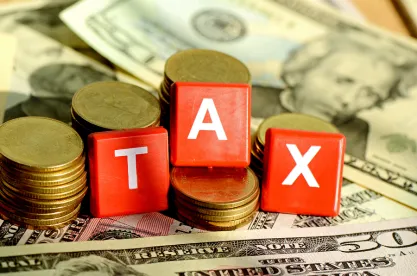Read below for coverage of the recent hearing on the proposed regulations that would redefine the term “political subdivision” and the 127 comments submitted so far on the same topic. Plus learn more about a private letter ruling addressing a management contract that concludes there was no private business use even though payment of an incentive fee was triggered in part by meeting a target that was a “variant” of net profits.
Hearings on the Definition of Political Subdivision held; more comments received.
The Bond Buyer covered the public hearings held by the Treasury Department and the Internal Revenue Service on the proposed regulations that provide a new definition of “political subdivision.” There were ten speakers total, with representatives from the Government Finance Officers Association, the Securities Industry and Financial Markets Association and the National Association of Bond Lawyers present.
The IRS and Treasury will have their hands full reviewing the comments submitted. To date, 127 written comments have been received on the proposed definition. See here for a list of all comments received. In addition to comments from industry groups, numerous political subdivisions and other interested parties submitted comments to explain how the proposed regulations would adversely impact them or to lend support to comments written by others. Many commentators suggested either halting the regulations project altogether or making specific revisions to permit more entities that have historically qualified as “political subdivisions” to continue to qualify as such.
PLR 201622003 addresses management contracts
PLR 201622003, available here, concludes that a management contract does not result in private business use. The PLR addresses a contract in which the manager of a hotel is to receive a base fee based on gross revenue and potentially receive an incentive fee based on gross revenue. The incentive fee is paid only if “RevPar” and “Margin” tests are met for the year. The RevPar test is applied by comparing per-room revenues of the hotel to other hotels. The Margin test is met if the “adjusted revenue margin” exceeds a percentage threshold. The PLR indicated that the adjusted revenue margin is a “net profits in which the Hotel’s gross revenue is reduced only by major expenses under the control of the Manager.” In its analysis, the IRS said that:
[T]he amount paid as incentive fee is a predetermined, fixed percentage of gross revenue. Despite being partly triggered by a variant of net profits (that is, the Margin Test), the incentive fee is not structured in such a way that its amount rises in proportion to increases in the Hotel’s net profits or falls in proportion to decreases in the Hotel’s net profits.
The IRS also noted that the incentive fee was “further distanced from net profits” because the trigger for the incentive payment also depended on the RevPar test, which was based solely on revenues.



 />i
/>i
